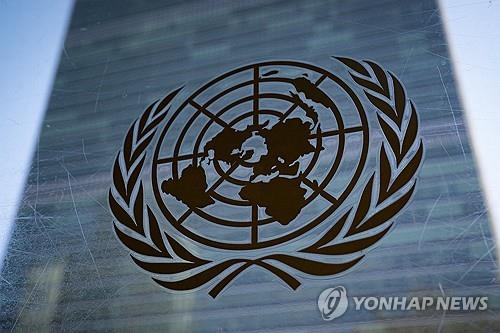The Republic of Korea (South) established diplomatic relations with Cuba on Feb. 13, 2024, the ROK Mission in the United Nations disclosed in a surprise announcement that could pose a setback to North Korea who has long boasted brotherly ties with the Latin American country.
In New York, the two countries' representatives to the United Nations exchanged diplomatic notes, marking the establishment of formal ties. Cuba is the 193rd country which South Korea has built diplomatic relations with.
The announcement marked a culmination of Seoul's steadfast efforts to build a formal relationship with Cuba and expand its diplomatic foothold in Central and South America on the back of growing cultural and people-to-people exchanges.
Although Cuba officially recognized South Korea in 1949, bilateral exchanges were effectively severed after Fidel Castro seized power in a 1959 revolution. On the contrary, Cuba and North Korea -- Cold War-era allies -- have maintained brotherly ties since they forged diplomatic relations in 1960.
Observers said that official relations between Seoul and Havana could deepen Pyongyang's diplomatic isolation and put more pressure on the recalcitrant regime to shift away from its provocative streak and return to dialogue.
"The decision to establish official relations between both states was made in accordance with the purposes and principles of the Charter of the United Nations, International Law, and in conformity with the spirit and rules established in the Vienna Convention on Diplomatic Relations of 18 April 1961," the mission said in a release.
On the new diplomatic relations, a State Department spokesperson said, "We respect the ROK's sovereign right to determine the nature of its diplomatic relationships." ROK stands for South Korea's official name, the Republic of Korea.
The Yoon Suk Yeol administration apparently pushed for the opening of official ties with Cuba in a low-key manner in consideration of Cuba's longtime relations with the North.
The forging of the relations came as inter-Korean tensions have deepened with North Korean leader Kim Jong-un branding the South as a "primary" foe and doubling down on his regime's formidable weapons tests, including this week's round of cruise missile tests.
The pursuit of the bilateral ties appears to have been driven by a confluence of Havana's quest for deeper economic and cultural exchanges with Asia's fourth largest economy, and Seoul's drive to expand its global profile, observers said.
In a separate press release, Seoul's foreign ministry expressed expectations that formal relations with Cuba will mark a "crucial turning point" in its efforts to strengthen diplomacy with Central and South America and further expand its diplomatic horizons.
"Going forward, our government will actively cooperate with the Cuban government on follow-up steps, including the mutual establishment of diplomatic missions," the ministry said in the release.
It pointed out that the diplomatic ties set an institutional foundation to expand bilateral economic cooperation and support South Korean businesses seeking to create footholds into the country's market.
Seoul's efforts for better ties with Havana span more than two decades.
A much-needed momentum for bilateral engagement emerged in 1999 when South Korea backed a U.N. General Assembly resolution on the need to end a trade embargo against Cuba. In 2016, Seoul's diplomatic overture was highlighted by then Foreign Minister Yun Byung-se's trip to Cuba -- the first such trip by Seoul's top diplomat.
The diplomatic push gathered steam as the Yoon government stepped up its diplomacy toward Cuba at multilateral forums like the Association of Caribbean States summit held in Guatemala last May.
In Cuba, currently some 1,100 people of Korean descent reside. In the pre-pandemic era, an average of about 14,000 South Koreans visited Cuba each year, according to government data.
In recent years, exchanges between the two countries in culture, people-to-people exchanges, development and other areas have steadily increased, adding to the momentum to establish formal relations.
In Cuba, "ArtCor," a group of roughly 10,000 fans of Korean popular culture, is in operation as a sign of growing public interest of South Korea. Underscoring Koreans' interest in Cuban culture, a festival featuring Cuban films took place in Seoul in 2022.
With formal relations with Cuba, Syria is the only remaining U.N. member state with no diplomatic ties with Seoul.

This file photo, released by the Associated Press, shows U.N. headquarters in New York. (Yonhap)

